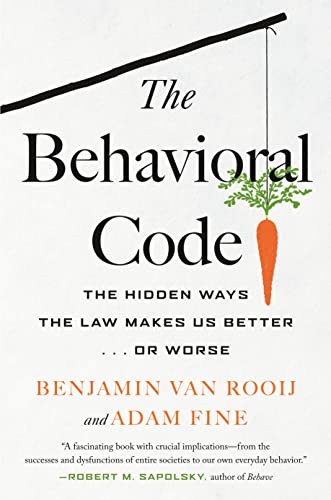

Most ebook files are in PDF format, so you can easily read them using various software such as Foxit Reader or directly on the Google Chrome browser.
Some ebook files are released by publishers in other formats such as .awz, .mobi, .epub, .fb2, etc. You may need to install specific software to read these formats on mobile/PC, such as Calibre.
Please read the tutorial at this link: https://ebookbell.com/faq
We offer FREE conversion to the popular formats you request; however, this may take some time. Therefore, right after payment, please email us, and we will try to provide the service as quickly as possible.
For some exceptional file formats or broken links (if any), please refrain from opening any disputes. Instead, email us first, and we will try to assist within a maximum of 6 hours.
EbookBell Team

0.0
0 reviewsA 2022 American Bar Association Silver Gavel Award Finalist.
A Behavioral Scientist’s Notable Book of 2021.
Freakonomics for the law—how applying behavioral science to the law can fundamentally change and explain misbehavior.
Why do most Americans wear seatbelts but continue to speed even though speeding fines are higher?
Why could park rangers reduce theft by removing “no stealing” signs?
Why was a man who stole 3 golf clubs sentenced to 25 years in prison?
Some laws radically change behavior whereas others are consistently ignored and routinely broken. And yet we keep relying on harsh punishment against crime despite its continued failure. Professors Benjamin van Rooij and Adam Fine draw on decades of research to uncover the behavioral code: the root causes and hidden forces that drive human behavior and our responses to society’s laws. In doing so, they present the first accessible analysis of behavioral jurisprudence, which will fundamentally alter how we understand the connection between law and human behavior. The Behavioral Code offers a necessary and different approach to battling crime and injustice that is based in understanding the science of human misconduct—rather than relying on our instinctual drive to punish as a way to shape behavior.